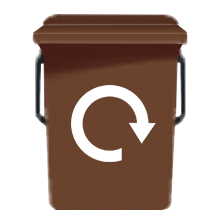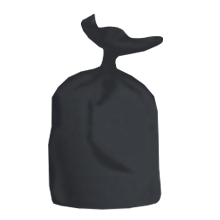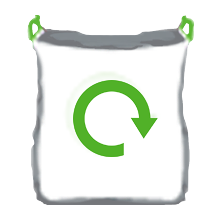Coronavirus (COVID-19) is a very infectious respiratory disease caused by the SARS-CoV-2 virus. Very few healthy children and young people with COVID-19 infection go on to have severe disease.
5-11 year olds
The 5 to 11 years COVID-19 vaccination programme has been delivered on a short-term basis in accordance with the guidance from the Joint Committee on Vaccination and Immunisation (JVCI).
First doses were available to Bailiwick children aged 5 to 11 years until 3rd September 2022. Limited availability for this group to have a second dose continued until 26th November 2022..
12-15 year olds
All young people aged 12 to 15 years are being offered the first dose of the Pfizer COVID-19 vaccine.
A second dose of vaccine will be offered to young people aged 12 to 15 years with a 12-week gap between the 2 doses.
Why you should have your child vaccinated
- While COVID-19 is typically mild or asymptomatic in most young people, it can be very unpleasant for some. Very few children and young people with COVID-19 infection go on to have severe disease but in some people, the illness can carry on months after infection. This is known as long COVID. The vaccine will provide good protection against severe illness and hospitalisation.
- Vaccinating 12 to 15 year olds should also help to reduce the need for young people to have time-off school and reduce the risk of spread of COVID-19 within schools.
- The Joint Committee for Vaccination and Immunisation (JCVI) also advised that the benefits from vaccination are marginally greater than the potential known harms in this age group.
- The Chief Medical Officers from the four nations met to consider if this cohort of young people should be offered a COVID-19 vaccination and concluded that offering a COVID-19 vaccine to all 12-15 year olds would provide protection to young people and reduce the disruption to face to face education and should be recommended.
- A group of subject-matter experts was constituted to specifically examine whether Guernsey should offer a COVID-19 vaccine to 12 to 15 year olds who concluded that 12 to 15 year olds in The Bailiwick should be offered a single dose of vaccine.
- On 29 November 2021, the JCVI announced that young people aged 12 to 15 would be offered a second dose of COVID-19 vaccine in response to the Omicron variant of concern.
The COVID-19 vaccine
- The COVID-19 vaccine helps to reduce the chance of COVID-19 infection and provides good protection against serious disease. Like all medicines no vaccine is completely effective. Some people may still get COVID-19 despite having the vaccine, but this should be less severe. It may take a few weeks to build up some protection from the first dose of vaccine.
- The medicines regulator, the Medicines and Healthcare products Regulatory Agency (MHRA), has confirmed the Comirnaty 30mcg vaccine is safe and effective for 12 to 17 year olds. This followed a rigorous review of the safety, quality and effectiveness of the vaccines in this age group.
- The MHRA will only approve a vaccine for supply in the UK if the expected standards of safety, quality and efficacy are met. The safety and effectiveness of the coronavirus vaccines continue to be checked while in use.
Where can I find more information on COVID-19 vaccine?
- You will receive a product information leaflet in your invite letter. The leaflets can also be found on the States of Guernsey website. The leaflets provide more information for parents and young people on the vaccine, including how it works and what to expect after COVID-19 vaccination.
- You can make an appointment to speak to one of the clinical team if you want more information on the vaccine or have any queries. Just contact the team at the Vaccine Call Centre on 01481 220006 and ask to speak to one of the team about a vaccine for a 12-15 year old.
- You may find the answer to your question on our FAQ page: Frequently Asked Questions | States of Guernsey - COVID-19 (gov.gg).
Common side effects
- Like all medicines, vaccines can cause side effects. Most of these are mild and short term, and not everyone gets them. With the vaccine we use in under-18s, side effects are more common with the second dose.
- Very common side effects in the first day or two include:
- a heavy feeling or soreness where you had the injection
- feeling achy or like you've got the flu
- feeling tired
- having a headache
- Rest and simple pain relief, such as paracetamol (follow the dosing advice in the packaging) can help people to feel better. Although feeling feverish is not uncommon for 2 to 3 days, a high temperature is unusual and may indicate an infection which could be COVID-19. Symptoms following vaccination normally last less than a week.
- You can report suspected side effects of vaccines and medicines through the Yellow Card scheme. You can do this online by searching Coronavirus Yellow Card or by downloading the Yellow Card app: coronavirus-yellowcard.mhra.gov.uk/productinformation
Less common side effects
- Recently, cases of inflammation of the heart (called myocarditis or pericarditis) have been reported very rarely after COVID-19 vaccines. This less common side effect has been reported in 3 to 17 cases per million after first vaccinations and in 12 to 34 cases per million for the second vaccination, based on international data for all 12-15 year olds. Many of these cases have been in boys and most of these people recovered and felt better following rest and simple treatments.
- You should seek medical advice urgently if you experience:
- chest pain
- shortness of breath
- feelings of having a fast-beating, fluttering, or pounding heart
- You can report suspected side effects of vaccines and medicines through the Yellow Card scheme. You can do this online by searching Coronavirus Yellow Card or by downloading the Yellow Card app: coronavirus-yellowcard.mhra.gov.uk/productinformation
How the consent process works
- For 12-15 year olds, all parents, or those with parental responsibility, are asked for consent and will usually make this decision jointly with their children. We encourage parents, guardians and young people eligible for vaccination to use the resources provided on this site and enclosed in their invitation letter to discuss the decision about the young person's vaccine offer.
- A consent form will be enclosed in the envelope with your invite letter. This form must be completed and brought with the young person on the day of the vaccine appointment.
- This is a well-established consent process which the majority of parent's will be familiar with from the school-based vaccination programmes.
Can parents refuse to have their child vaccinated?
- The vaccine is not mandatory. Parents will be asked to give their consent for the vaccine. Young people may express a wish to have the vaccine and may have the capacity to provide informed consent themselves. We encourage all parents and guardians to discuss the vaccine with any young people eligible for the vaccine within their household. Further resources to support this discussion can be found on this website.
What happens if a parent has not consented, but the young person wants to be vaccinated?
- Young people who understand fully what is involved in a proposed procedure, such as vaccination, can legally give consent. This is known as 'Gillick competence'.
- If a young person contacts the vaccination team requesting a vaccination and no consent has been received from the adult with parental responsibility has been received, but the young person wants to be vaccinated we will make every effort to contact a parent, to try and reach agreement between the parent and young person. However, the parent cannot overrule the decision of a Gillick competent young person.
- The Green Book of Immunisation contains more information on consent including Gillick competence.
Young people aged 12 to 15 years who are at increased risk from infection
- Coronavirus can affect anyone. Data from previous waves of the pandemic highlighted that children and young people with the following are at greater risk from COVID-19:
- cancers (such as leukaemia or lymphoma)
- diabetes
- serious heart problems, such as a significant congenital heart defect
- chest complaint or breathing difficulties, such as cystic fibrosis, ciliary dyskinesias and bronchopulmonary dysplasia, including poorly controlled asthma*
- kidney, liver or a gut disease, including those associated with congenital malformations of the organs, metabolic disorders and neoplasms
- lowered immunity due to disease or treatment (steroid medication, chemotherapy or radiotherapy)
- an organ transplant
- a neurodisability or neuromuscular condition, such as muscular dystrophy or cerebral palsy
- a severe or profound learning disability
- Down's syndrome
- a problem with your spleen, e.g. sickle cell disease, or you have had your spleen removed
- epilepsy
- serious genetic problems
- other serious medical conditions as advised by your doctor or specialist.
- Due to the increased risk of poor health associated with a COVID-19 infection, individuals meeting the above criteria will be offered two doses of vaccine administered at an eight-week interval.
- *asthma that has required at least two courses of oral corticosteroids in the preceding 24 months, a maintenance oral corticosteroids or at least one hospital admission in the preceding 24 months.
My child has allergies can they have the vaccination?
- There are very few children who cannot receive the vaccine.
- Prior to vaccination all individuals are issued with a leaflet that outlines safety information about the vaccine. This will include a link to more detailed information about any health conditions that may prevent a young person from receiving vaccination. You can read the Information for UK recipients for more information.
- All young people and their parents or carers should consult their clinician if they have concerns regarding allergies and COVID-19 vaccination.
Can I bring someone with me?
- We ask that children aged 12 to 15 will need to attend a vaccine clinic with a parent/guardian.
- Please do not bring anyone else with you, the vaccination cubicles are not built to provide the room for additional people. If there is more than one child from the same household eligible for a vaccine in this cohort please let the call handlers know when you make your first appointment, they will book all the young people into the same clinic, even if they have not received their invite letter yet.













